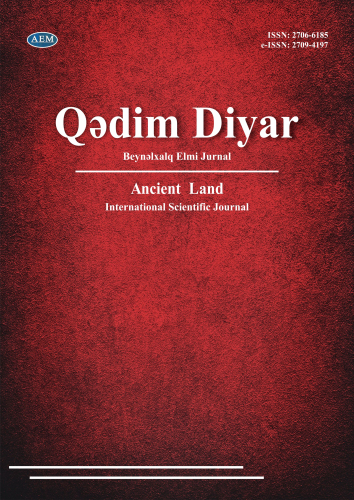DOI: https://doi.org/10.36719/2706-6185/26/35-40
Zəhra Seyidqızı
Naxçıvan Dövlət Universiteti
zehra.seyidqizi@turanbazar.com
İNSANDA İNSANLIQ TƏRBİYƏSİ
Xülasə
Ölməz Mirzə Cəlilin “Ölülər” əsərində “dirilər” üçün çox ibrətamiz olan bir fikir var. Kefli İsgəndər üzünü insanlara tutub təəssüflənir və deyir: “Hamı deyir ki, get, oxu, alim ol. Amma bir deyən yoxdur ki, get, oxu, adam ol”. Bəli, bir şəxsiyyətə məxsus ən nəcib keyfiyyətlər “adam” olmaq, insan kimi yaşamaq, insanda insanlıq tərbiyə etməkdir. Məgər bu bizim hər birimizin ən təmiz duyğulu, ən nəcib hissli vətəndaşlıq vəzifəmiz deyilmi? Bəs bu vəzifəyə münasibət necə, hamıda eynidirmi?
Açar sözlər: tərbiyə, əxlaq, valideyn, uşaq, insanlıq, hörmət, yaxşılıq, dəyər, mentalitet, əqidə, həqiqət, əməl, düşüncə, ədalət, fikir, ağıl, xəta, günah, səbr
Zahra Seyidgizi
Nakhchivan State University
zehra.seyidqizi@turanbazar.com
Nurturing humanity in the human
Abstract
In the “Ölülər” (the dead) work of immortal Mirza Jalil, there is a very exemplary idea for the “alive”. Kefli Isgender faces humans, regrets and tells: “Everybody says that, go, study, be a scientist (scholar). But there is nobody saying that, go, study, be a human”. Yes, the most noble qualities belonging to a personality are being “human”, living like a human, nurturing human in the human. But isn’t it our- all of our civic duty with the purest soul, with the most noble feeling? Then how about the attitude towards this duty, is it the same for everybody?
Keywords: nurture, ethics, parent, child, humanity, respect, favour, worthwhile, mentality, belief, truth, act, thought, justice, idea, wisdom, fault, guiltiness, patience

